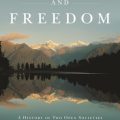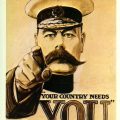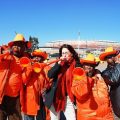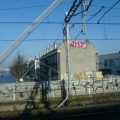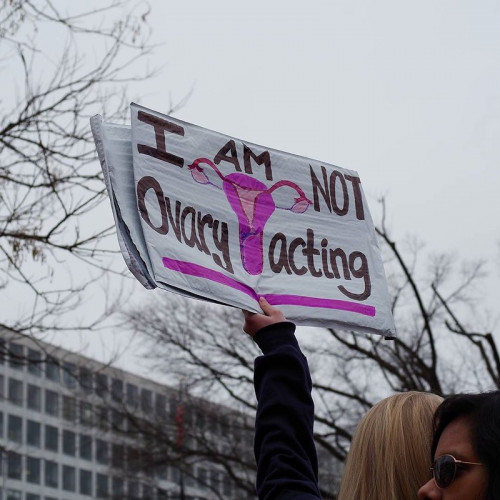Cancer 2009
During the Gemini period I followed my own advice, did the right thing for the time, and went networking! At one event I met a person with a specialty that I don’t often come across, an economist. I always imagined that these were people interested in high finance and talking about incomprehensible factors in the economy. Frankly the people that got us into our current mess!
Anneke Wilms was, until a few years ago, a living example of ‘homo-economicus’. “Everything is about material issues and, if you know the right formula, you can calculate everything you need to know”, was her motto. But an experience with an unexplainable event convinced her that not everything is about the economy. The world should understand that.
It was heartwarming then, to find that Anneke has a heart and not only that, she wants to change how we look at economic science. We had an interesting discussion and, since I was thinking about this Cancer post I asked her if she would like to write something on the house market situation. She agreed but first…
What I think….
We all have Cancer somewhere in our horoscopes, as do businesses. We all need to be in nurturing environments that suit us. We need to feel a sense of belonging. We need to eat things we love. We need some kind of family. In the past year many of us have lost all these things. Our homes, jobs, families. We are staying in jobs that don’t support us. We are living in situations that are damaging.

Makes me think of Cat Stevens’ (Yusuf Islam) line in Into White – ‘everything emptying into white’.
I was therefore delighted to see a BBC programme this month, Home for Life, that highlights how we can change our houses and put our own stamp on them. Rich or poor, we can change our surroundings to reflect what we love. What was highlighted was how often we do the opposite of Cancer, the Capricorn thing, and have sensible white in our houses, or keep furniture we hate. We save up because of fear of what might happen next. The programme had the idea that we need to create our piece of Britain (in this case) and make it unique to us.
Wider surroundings
Are we doing this Capricorn thing in companies as well? We are certainly doing it at government level. Trying to go for a global fix – a one size fits all. Of course the global market is a fact and we have to work together. But people in different countries and companies are nurtured by completely different things. Is it not time for us to do country or company ‘Mood Boards’, as they did in this programme, to find out what gives us a sense of being nourished by our environments? It certainly worked a treat in the two families on the BBC programme. I say let’s look at what really feeds us at all levels.
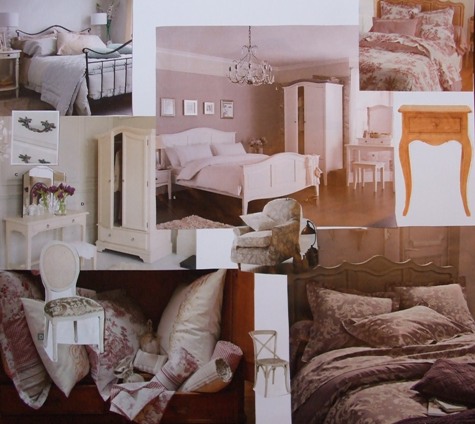
Moodboard from interior-design-it-yourself.com
What Anneke thinks…
is in full in Dutch below and is about more than the house market and I translate it here.
Everything is about the economy!
During the last 50 years, economic strategy has been poisoned by the cynical belief that everyone is egotistic and materialistic. The study of economics has influenced this belief and now forms much of the basis of government strategy, such as deregulation in the banking sector, which has resulted in the ‘greed culture’ seen in the stock market. Everything is about gaining more money, even projects that started out with a social intention. An example that came out of the ‘New Deal’ was that it should be possible for everyone in the US to own a house. One of Franklin D. Roosevelt’s ideas was to build houses for people on low incomes to help emerge from the depression. Another was to regulate, so that inflation would never be so shockingly high again.
Ronald Reagan furthered this principle under the influence of the economist Milton Friedman. This resulted in a very complicated system for mortgages worldwide.
From Credit to Crisis: the property bubble
‘A home for everyone’ was the motto. But American banks had loaned far more than the value of the properties. Much use was made of the ‘step-up loan, where you started paying a low interest (1% in 2001) and as time went on this was increased. Many Americans had to sell when the normal interest rate had to be paid, as they had borrowed well above their means. As house prices fell this spiralled into a situation where house owners were forced to sell in 2006-7.
Another custom also played a role in making the situation worse and that was the so-called ‘over-the-top’ mortgage. Everyone thought that borrowing more than the value of the house was safe, because house prices had always risen. Selling would always achieve more than the loan. Even when, since 2002, this was clearly not the case, these loans were still being given.
Easy money and short term profit was aimed for against sensible advice. Thanks to the lack of clarity in the mortgage market, this situation managed to survive for years.
To quote the Dutch Minister of Finance, Wouter Bos: ‘contracts were cut into three and traded five times. No one understood what was happening’. Until the bubble burst and the pyramid collapsed.
It had to happen sometime but does it offer opportunities?
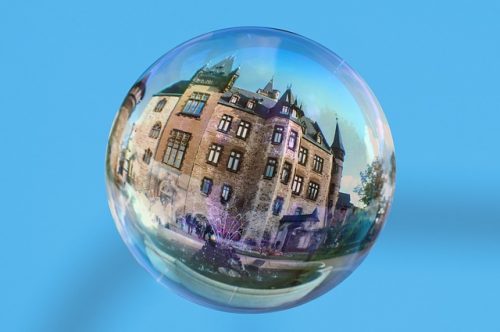
From greed to stewardship: evolution in economic science or a return to old values?
In our current society, economics cannot explain the sense of unease that is palpable. It is concentrating on the problem of scarcity and choice, but scarcity is not always economic. The unease can be caused by lack of trust or responsibility. Still economists look for solutions that are about growing the economy through working harder and longer and for less money. Savings are sought in health care and social services. Economic measures are taken.
But man is not only a ‘homo economicus’ who works like a computer when he makes decisions. He is also a ‘homo socialis and moralis’. It is not only about money but also about things such as friendship, care and attention and in the end about something cultural or spiritual. Something that gives life meaning. What drives us.
Not that the economy is unimportant. But the economy is only a tool, something that makes what is important, possible.
We must think differently! writes Arjo Klamer (a Dutch professor in the economy of art and culture at Erasmus University in Rotterdam) in his book ‘In Heaven’s Name’. He describes here the possibility of a merging of economics with social sciences. A place where social and cultural norms also have a place beside market forces and a regulating government. According to Klamer, within economic science there is a place for responsibility, loyalty, care, love, connectedness and sharing. Adam Smith ‘the father of the free market’ knew that. According to his book ‘The Theory of Moral Sentiments’ a market transaction can only be morally acceptable when it is part of a culture with humane principles.
In the end it’s not all about the economy!
 In his newest cyclical letter ‘Caritas in Veritate’ Pope Benedictus XVI suggests that in the current crisis we need to look deep into our hearts to see what drives us. Modern man is mistaken if he thinks he can make his way alone. If you have to earn everything yourself to have what you want, then you have lost the bigger picture. If economics is based on this view then true freedom is limited.
In his newest cyclical letter ‘Caritas in Veritate’ Pope Benedictus XVI suggests that in the current crisis we need to look deep into our hearts to see what drives us. Modern man is mistaken if he thinks he can make his way alone. If you have to earn everything yourself to have what you want, then you have lost the bigger picture. If economics is based on this view then true freedom is limited.
Anneke Wilms July 2009
Anneke and I are coming from different disciplines but I think we are saying similar things. Money is not the only important factor for our well being and the running of a good economy! The Cancerian themes of caring and connectedness also form part of the solution.
Faye Blake-Cossar
Interesting Website of the Month
Sometimes while trawling the net you come across unexpected finds. This one doesn’t have much to do with our theme but I liked it anyway! And it is about nurturing environments. Some of the exercises are fun too.
Quote of the Month
“Home is the place where, when you have to go there, they have to take you in.” Robert Frost, American poet 1874-1963
Anneke Wilms’ Original Dutch Text
Alles draait om de economie!
De afgelopen vijftig jaar is het economisch beleid vergiftigd door de cynische veronderstelling dat de mens in wezen egoïstisch en materialistisch is. Dit mensbeeld wordt onderwezen bij de studie economie, die weer de basis vormt voor een groot deel van het overheidsbeleid, zoals de deregulering van de banksector, en daaruit is de graaicultuur van de beurzen voortgekomen. In een dergelijke cultuur wordt alles ondergeschikt gemaakt aan het economisch gewin. Ook programma’s met een oorspronkelijke sociale intentie. Bijvoorbeeld het nog uit de ‘New Deal’ stammende beginsel om iedereen in de Verenigde Staten de mogelijkheid te geven een huis te kopen.
Eén van de middelen uit het investeringsprogramma van de Amerikaanse president Franklin D. Roosevelt om uit de depressie van de jaren dertig te komen was het huizen bouwen voor mensen met lagere inkomens. Een ander deel van de ‘New Deal’ betrof het regulerend op treden in het bancaire stelsel en de beurzen. De inflatie mocht nooit meer zo schrikbarend toeslaan. Onder invloed van de monetair econoom Milton Friedman borduurde Ronald Reagan daar later op verder. Gaandeweg ontstond er een ingewikkeld financieel systeem met garantiestelsels en het doorverkopen van delen van hypotheken van en naar andere banken en verzekeringsinstellingen over de hele wereld.
Van krediet naar crisis: de vastgoedzeepbel
Iedereen een eigen huis was het motto. Maar Amerikaanse banken hadden vaak meer uitgeleend dan de waarde van het onderpand rechtvaardigde, bijvoorbeeld om de inrichting van het huis of de ‘kosten koper’ mee te financieren. Bovendien werd veel gebruik gemaakt van de zogenaamde step-up loan: een lening met een lage instaprente (in 2001 slechts 1 procent) die na verloop van tijd automatisch omhoog gaat. Zo konden veel Amerikanen grote bedragen lenen, ver boven hun eigenlijke koopkracht, maar dan moest het nieuwe huis wel verkocht worden voordat de ‘normale’ rente in zou gaan.
Toen door de steeds hogere huizenprijzen de vraag naar woningen afnam, konden veel ‘step-up loaners’ hun huis niet meer tijdig van de hand doen en kregen ze te maken met rentetarieven die ze niet konden betalen. En omdat de gewone rentetarieven vervolgens ook nog eens stegen, konden tevens veel huizenbezitters met tophypotheken hun rentelast ook niet meer dragen. In 2006 en 2007 moesten veel Amerikanen hun huis noodgedwongen verkopen, of ze stuurden hun huissleutels terug naar de bank, die vervolgens bleven zitten met een stuk onroerend goed dat in waarde daalde.
Een verschijnsel dat de crisis nog eens extra verergerde was de zogenaamde ‘over-de-top’ hypotheek. Omdat hypotheekverstrekkers gewend waren aan decennia van stijgende huizenprijzen, gingen ze ook geld lenen aan mensen die eigenlijk niet kredietwaardig waren. Mochten die hun rente onverhoopt niet kunnen betalen, dan zou de gestegen waarde van het onderpand dat verlies ruimschoots goed maken, zo redeneerden zij. Vanaf 2002 werd door veel financiële instellingen ook aan deze categorie aanvragers een hypotheek verstrekt, terwijl vaak volstrekt duidelijk was dat de hypotheeknemers hierdoor in de problemen zouden komen.
Makkelijk geld verdienen en korte termijn winstbejag won het van degelijk advies. Willens en wetens werden klanten in problemen gebracht. En dankzij de ondoorzichtigheid van de ‘rommelhypotheken’ op de internationale financiële markten kon dit jarenlang volhouden worden. Om met de Nederlandse minister van Financiën, Wouter Bos, te spreken: ‘Het ging over waardepapieren die drie keer verknipt en vijf keer verhandeld waren. Niemand snapte er nog iets van.’
Totdat de zeepbel knapte en de piramide instortte. Het moest een keer gebeuren! En biedt het ook kansen?
Van hebzucht naar rentmeesterschap: een evolutie in de economische wetenschap of een terugkeer naar oude waarden?
In de huidige samenleving is een groot gevoel van onbehagen waarneembaar. De economische wetenschap kan het onbehagen niet verklaren. Want die houdt zich vooral bezig met het probleem van schaarste en keuze. Maar schaarste is niet altijd economisch. Het groeiende probleem van het gevoel van onbehagen zou ook een gebrek aan wellevendheid kunnen zijn, een gebrek aan vertrouwen, of een gebrek aan verantwoordelijkheidsgevoel.
Ook nu weer in deze tijd van crisis is de neiging groot de economische schaarste te benadrukken en dus oplossingen te zoeken in de economische sfeer. De economie moet weer gaan groeien, mensen moeten harder en langer werken tegen lagere of gelijkblijvende lonen. En er zal nog meer bezuinigd worden op de gezondheidszorg en sociale voorzieningen. Er worden dus vooral economische maatregelen getroffen.
Maar de mens is niet alleen een homo economicus die als een computer met allerlei rekenmethodes optimale keuzes maakt. De mens is ook een homo socialis en moralis. Het gaat niet in de eerste plaats om het geld, iets economisch dus, maar ook om iets sociaals, zeg vriendschap, zorg en aandacht, en uiteindelijk vooral om iets cultureels of spiritueels, oftewel om iets wat zin geeft aan het leven. Onze drijfveren.
Niet dat de economie er niet toe doet. Maar economie is niet meer en niet minder een middel, een instrument om dat wat werkelijk belangrijk is mogelijk te maken.
We moeten anders gaan denken! schrijft Arjo Klamer (een Nederlandse hoogleraar in de economie van de kunst en cultuur aan de Erasmus Universiteit Rotterdam) in zijn boek ‘In hemelsnaam’. Hij beschrijft hierin de mogelijkheden van een economische wetenschap die de menswetenschappen omarmt. Daarbij is dan naast de markt met (on)evenwicht in vraag en aanbod en een regulerende overheid ook nog plaats voor sociale en culturele waarden. Binnen de economische wetenschap kan volgens hem wel degelijk aandacht besteed worden aan zaken als: verantwoordelijkheid, loyaliteit, verbondenheid, zorgzaamheid, liefde, gemeenschappelijkheid en delen. Adam Smith ‘de vader van de vrije markt’ wist het al. Volgens zijn eerdere boek ‘The Theory of Moral Sentiments’ valt een markttransactie alleen moreel te verteren als ze is ingebed in een menselijke samenleving met relaties die menswaardig zijn.
Uiteindelijk draait alles niet om de economie!
In zijn nieuwste encycliek ‘Caritas in Veritate’ laat Paus Benedictus XVI ons weten dat alles om drijfveren draait. De huidige crisis is alleen te bezweren door in ons hart op zoek te gaan naar wat onze diepste beweegredenen zijn. De moderne mens vergist zich als hij denkt dat hij zelf alleen zijn leven of de maatschappij kan maken. Als je alles wat je wilt hebben zelf moet verdienen, verlies je het belang van het geheel – de wereld, de natuur of de mensenfamilie wereldwijd – uit het oog. Als een economisch systeem op deze gedachte van maakbaarheid en zelfredzaamheid is gebaseerd, dan wordt de echte vrijheid van mensen te kort gedaan.

